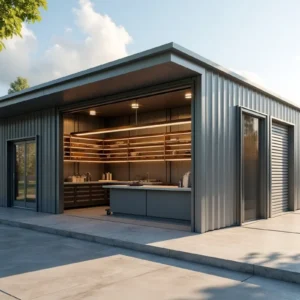Fall is a perfect time to see the tree leaves change colors which, for homeowners, should also be the best signal to schedule a home heater tune-up. The number one reason home heaters begin to have serious problems tends to be a lack of maintenance.
Everything from parts slowly failing to a buildup of dust and contaminants can lead to bigger problems over time. However, regular checks, maintenance, and tune-ups can find these issues before they become bigger, both checking the performance of the heater and identifying small fixes that keep the appliance going years longer.
Contents
What’s Involved with a Heater Tune-Up?
The initial tune-up steps involve running the system and comparing performance and response to expected standards for the model. At the same time, the technician physically inspects the exchanger and heater furnace itself. All connecting pipes and ducts are evaluated as well.
Additionally, the wiring is checked as well as the control responses to confirm everything is operating correctly. The heater is then adjusted and tuned for optimal response. If the air filter needs to be changed, that’s usually taken care of as well.
Finally, any obvious dirty parts are cleaned, and the heater blower is examined for problems. All intakes are examined for blockage as well.
What Happens Without Tune-Up Checks?
Probably the most disconcerting issue comes with wear and tear. Home heaters tend to work without notice year in and year out. The first subtle notice a check is needed comes with the first start of the season.
The heater blows warm air, and it smells like burning dust. This is a classic sign that there’s a build-up in the components going into the furnace and igniting. Cleaning is definitely needed. However, performance also starts to wane over time, requiring more heating cycles and an increase in utility costs as well.
Mechanical failure can happen at any time, but it tends to happen with older units with more frequency, especially at the 10-year mark and after. The most catastrophic issue, aside from the furnace losing control of its heating, involves the blower failing.
This is the unit that literally pushes the hot air through the house from the furnace as it is heated. The system literally fails to work when the blower fails. Once that happens, the system usually needs to be replaced, being so corroded and decrepit it would be unsafe to continue using, or a repair would only buy maybe another year of use.
Not a Do-it-Yourself Job
Some homeowners might feel with a few manuals and videos that they can check a heater without professional help. While there is a lot of good advice online, and the big box hardware stores provide valuable repair guides as well, heater tune-ups are the kind of thing where a professional’s evaluation is worth the small fee paid.
Think of heater tune-up services the same way one goes to the doctor for a physical exam once or twice a year; the goal is to catch things early that aren’t obvious to the casual observer. Training and experience in HVAC mechanics provide that expertise.
Unless someone is checking heaters daily, as well as repairing them, an average perspective is not going to come close to what a trained technician can see with an older system and even a newer model.
Additionally, many modern homes have a heating furnace in the ceiling attic versus in a ground-level closet. That means going up to the top of the home, squeezing around, and knowing what to look for without falling through the ceiling, or stepping in the wrong place. It can be very risky work and not the kind of thing one wants to be doing for the first time without practice or knowing what to look for.
Regular Checks Pay Off
Again, spending a small fee for a regular check pays off big dividends in the life of a home heating system. Remember, the last place you want to be involves dealing with a heater repair in the middle of January-dark winter. It’s better to check and maintain than have a system go out entirely without warning. Maintenance is your friend, so take advantage of it.




